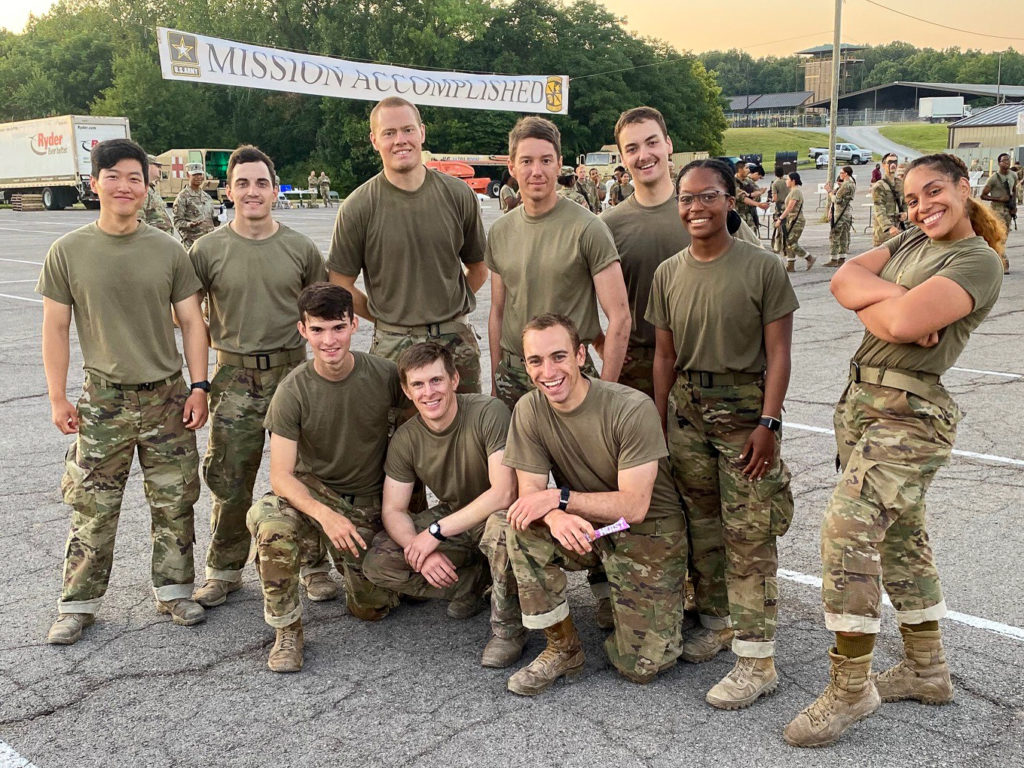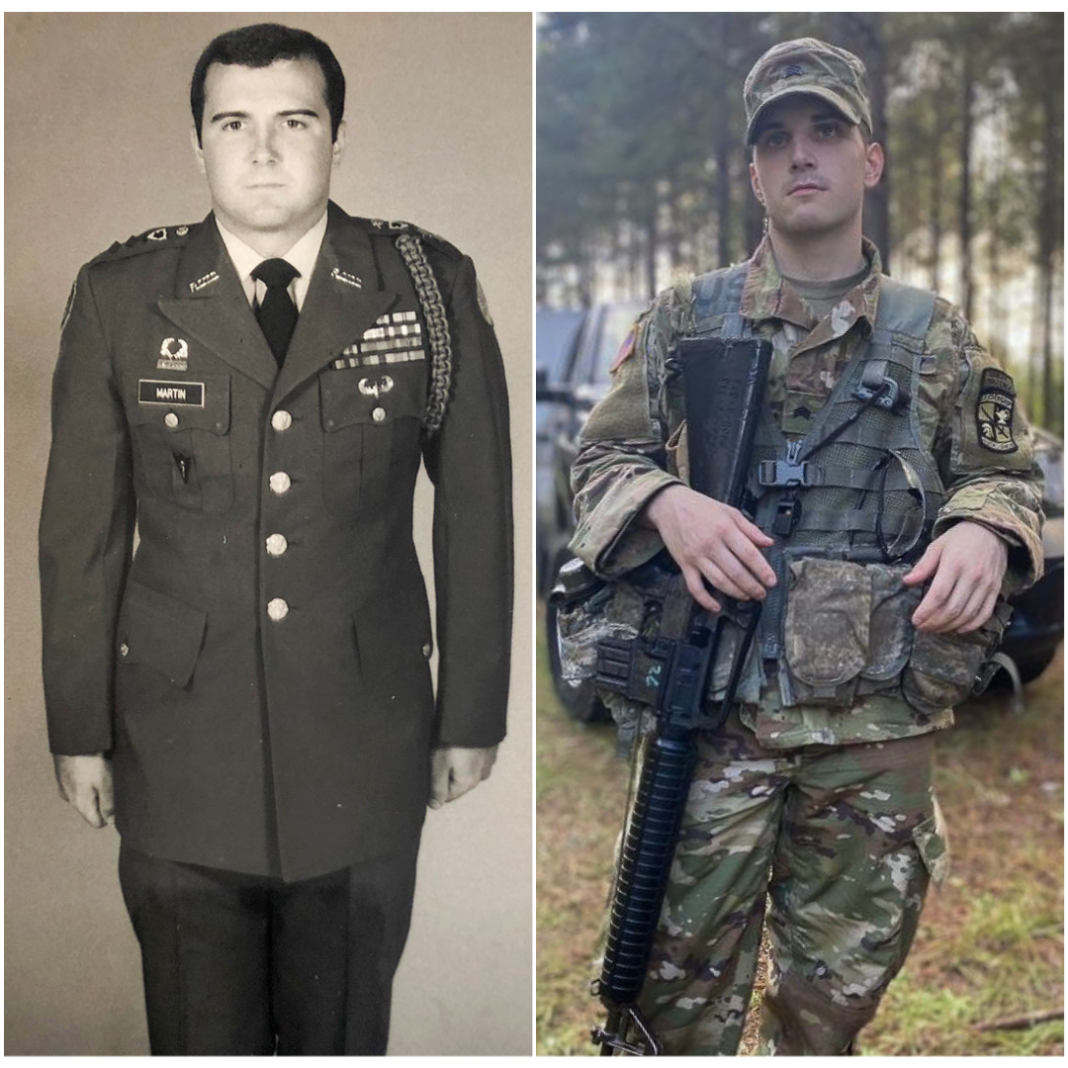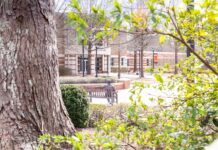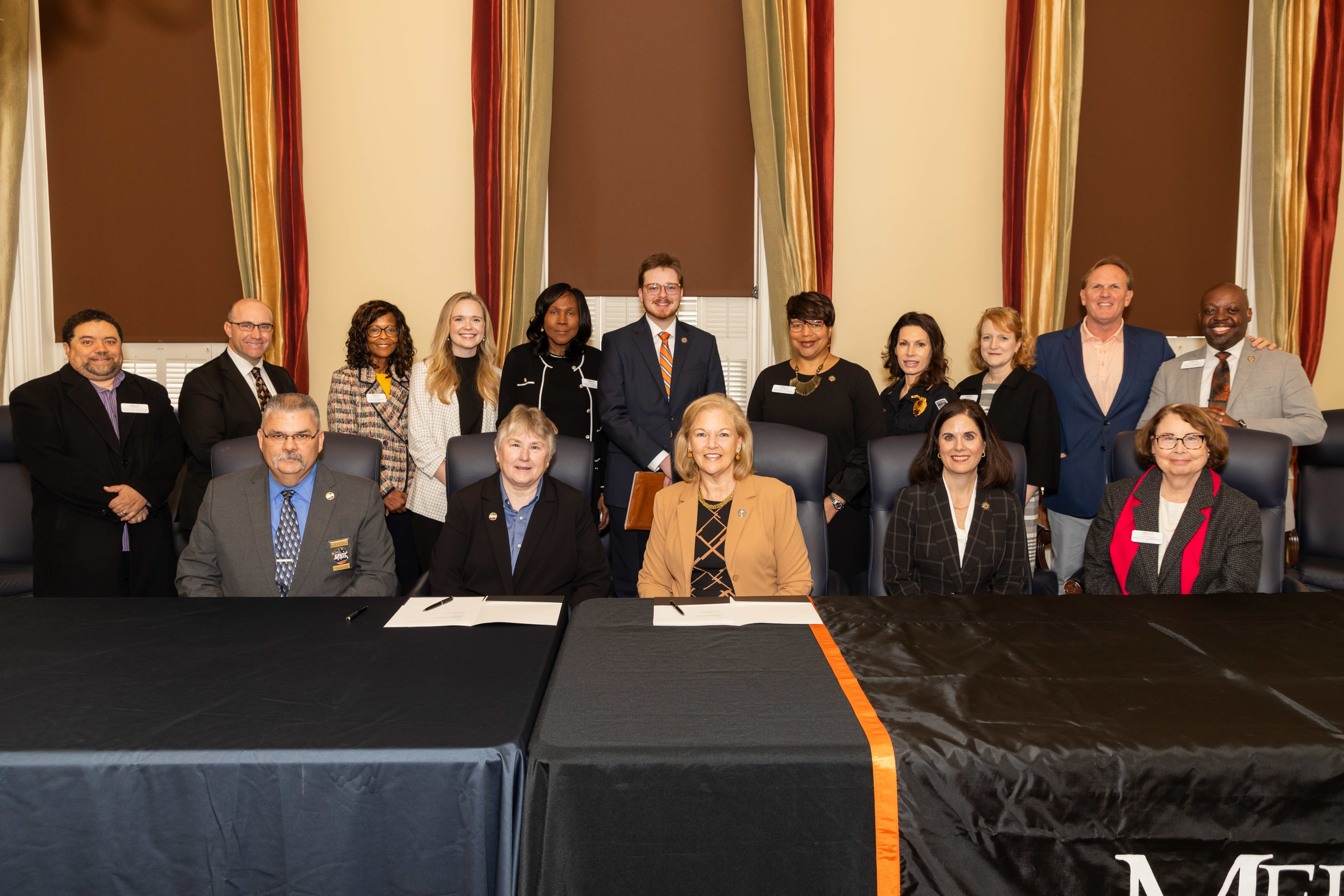When Matt Martin enrolled in Mercer’s Army ROTC program, he continued a legacy of military service that goes back more than 200 years. His mother and father both served in the Army and have a lengthy family history of military involvement. In fact, service on his father’s side can be traced back to the American Revolution.
As a senior now, Matt is following in his father’s footsteps in yet another way as cadet battalion commander, the same position Keith Martin held nearly 40 years ago.
Keith, originally from Macon County, attended Mercer on a four-year ROTC scholarship and graduated with a biology degree in 1984. During his time as cadet commander, he was responsible for training ROTC cadets not only at Mercer but also at Georgia Southwestern State University and the former Middle Georgia College, about 250 students total.
Keith said ROTC gave him the opportunity to develop his management skills and establish lifelong friendships. Five out of the seven cadets in his graduating class made a career out of the Army, all serving at least 20 years and achieving high ranks.
After Mercer, he went on to earn a doctorate in medical genetics at the University of Alabama at Birmingham, fully funded by the Army. He spent his 27-year Army career working mainly in the medical department, first as an infectious disease research scientist and then in various leadership and senior staff positions.
“When I left the service, I was the deputy commander for the U.S. Army Medical Research Institute of Infectious Diseases at Fort Detrick, Maryland, which is not only the Department of Defense’s but the nation’s largest biocontainment research laboratory for the development of medical countermeasures against endemic disease threats and bio threats. It was a great opportunity to lead some very talented scientists, both in uniform and civilian roles,” Keith said.
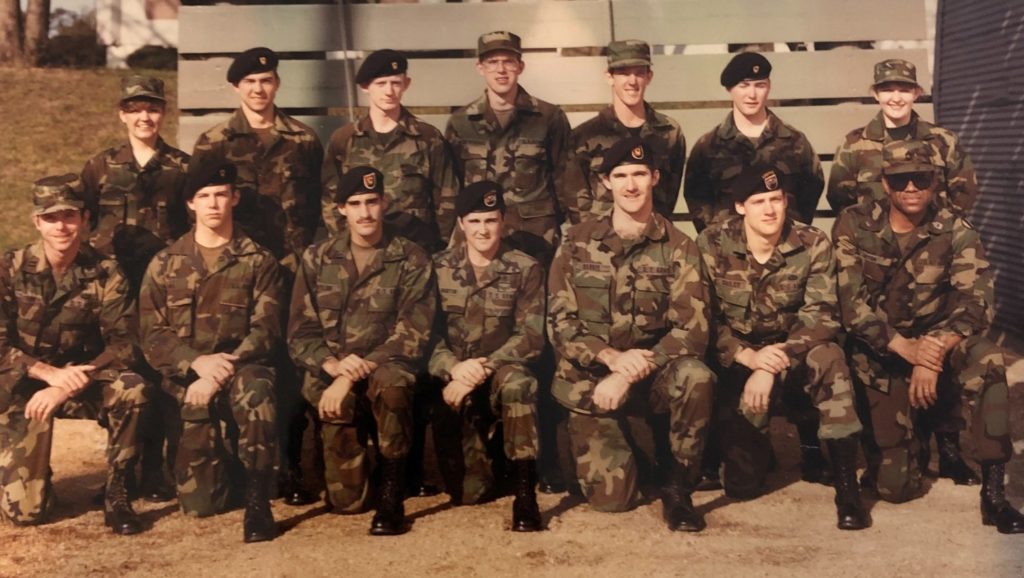
He met his wife, Mary Gene Klein, an Army nurse who served in medical treatment facilities in the United States and abroad, at Madigan Army Medical Center in Tacoma, Washington. Mary Gene served on active duty from 1986-93 and in the Army Reserves from 1994-99, working her way to the rank of major. The couple has lived in Montgomery County, Maryland, since 1996.
Keith said he and Mary Gene never encouraged or discouraged their only child to go into the military. They wanted him to make his own, informed choice. But Matt said his parents’ work left an impact on him early on, and he knew he wanted to follow their example.
“ROTC was a route that I viewed as beneficial to myself and my career,” said Matt, a global health studies major. “I get to have a college education and go directly into the Army and have a job waiting for me. I also wanted to continue my family legacy and continue to portray the Army and military with what I do.
“Seeing my dad go and do his duties, put on the uniform … he may not know it, but it was something at a super young age I was very proud of. I thought it was the coolest thing in the world. Ultimately, in the back of my mind, I knew I was going into the military.”
He chose Mercer because it had a reputable ROTC program and would allow him to be close to his grandmother, who lived in Oglethorpe before she passed away three years ago. He visited the area often growing up, and “Mercer was a homey feeling” for him.
Matt didn’t learn that his father had also served as cadet battalion commander at Mercer until he called home to share the news that he had been chosen.
“The fact that it’s something that we share now gives me a great sense of joy and pride,” Keith said. “But we would have been just as proud of him if he hadn’t been commander. He’s done well not only as a cadet but in his academic studies too.”
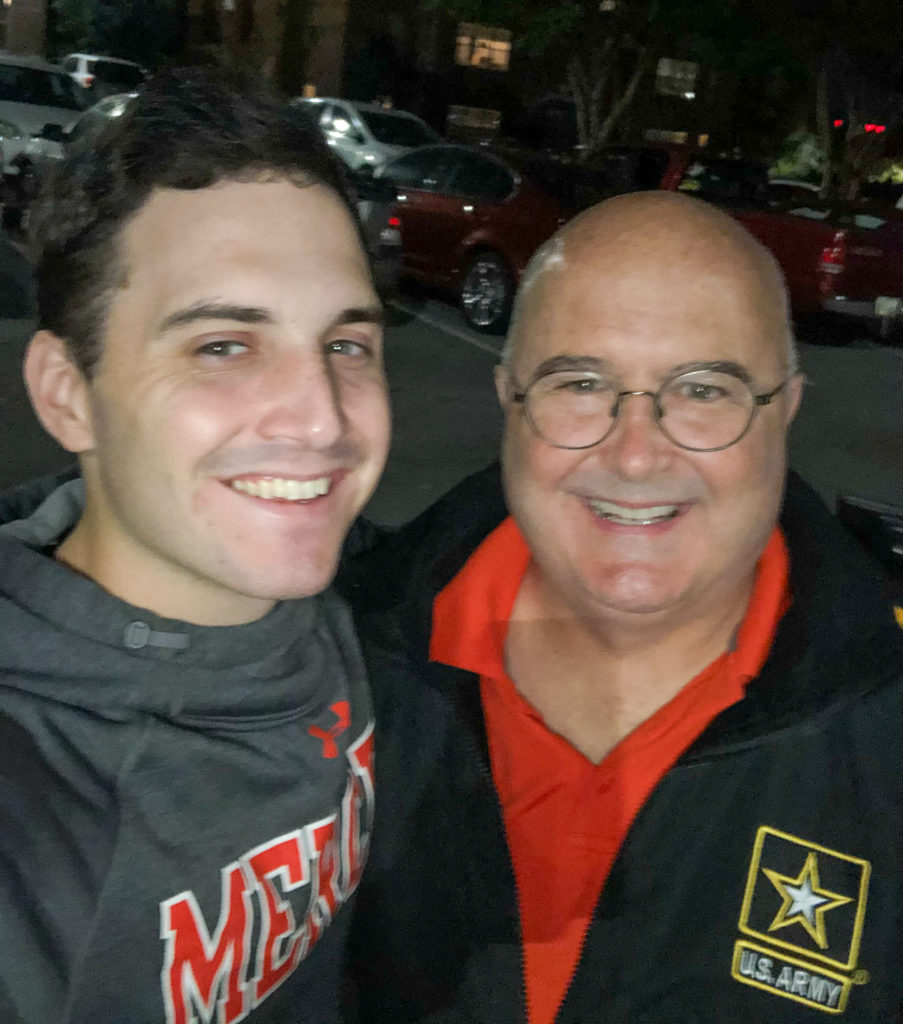
Mercer ROTC cadet battalion commanders are responsible for planning, coordinating and executing all battalion activities and training, said Maj. Bobbi Box, Mercer assistant professor of military science. They supervise six battalion staff officers, company commanders and the battalion command sergeant major, in addition to advising the professor of military science on cadet matters and acting as a link between the professor and the cadets. They also ensure cadet compliance with policies and procedures of the ROTC program.
“They set the standard and direction of the battalion while building an effective chain of command and developing a positive command climate,” Box said. “The competitive selection process of a cadet battalion commander is a significant achievement for a senior ROTC student.”
Matt was selected for this role after a unanimous, anonymous nomination by the previously graduated senior ROTC class and a unanimous vote by his peers this fall, Box said.
“Cadet Martin has been an inspirational leader to be under,” said Cadet Necole Gonsahn, a junior. “He has always lent a helpful hand and maintained a level of respect and empathy for me as a cadet. “He is very knowledgeable about what it means to be an Army leader and easily uses that knowledge to develop others.”
Cadet Kealer Campbell, a senior, said, Matt “is the embodiment of a good leader,” and Cadet Dean Kelleher, also a senior, said Matt “sees the value in leading a team and ensures we all improve daily.”
Matt said ROTC has taught him life skills that will be beneficial for his future. It has given him more structure and rigor within his life and showed him how to plan ahead. The early mornings and training can be tough, but the experience has been worth it.
“It’s definitely daunting, but it’s truly rewarding. Here at Mercer, ROTC puts students in the best position to succeed in whatever career they choose,” he said. “It’s definitely one of the more fulfilling leadership opportunities I’ve done. Seeing cadets learn and grow is something that I take away with pride.”
After graduation in May, Matt plans to be commissioned and enter the Army as an active duty soldier and hopefully serve in the Medical Service Corps, like his father. He wants to help people in other countries and eventually transition into a civil affairs role where he can be a mediator between the United States and its allies.
